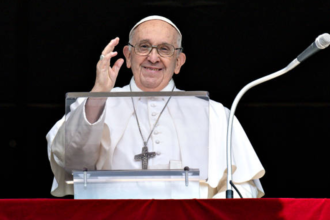As part of an aggressive bid to address the skyrocketing national debt burden in France, Prime Minister François Bayrou yesterday tabled a contentious initiative aimed at reducing two national holidays. The audacious proposal, tabled under the 2026 national budget, also cuts two days, Easter Monday and May 8, which are dedicated to remembering the victory of the Allied forces during World War II. The plan by Bayrou has been responsive to increasing pressure to cut government expenditure and fund the French defense requirements. The proposal has, however, received serious political outcry, casting doubt on the future political standing of the French government.
Why Is Bayrou Proposing to Cut Public Holidays?
Francois Bayrou, who came to power in December, has stated clearly that the debt situation here in France is serious. In a press conference, he described the national debt of the country as a mortal danger to the country and urged the people to take charge of it lest it destroy the French economy. To solve it, this was one of the methods that he deemed necessary by removing taster Monday and the 8th of May as public holidays in efforts to increase productivity and reduce the amount of spending. Bayrou said the month of May was like Swiss cheese, and it is filled with holes, as there are so many bank holidays, and the economy is hit by this.
Bayrou stressed that the proposal would be a bigger attempt to narrow the national budget deficit, which is at present at 5.8 percent of GDP. He aims to reduce the deficit to below 3 percent by 2029, as unanimously established by European Union fiscal norms. Here is the link to our article on Holiday Absence Crackdown
What Are the Key Elements of Bayrou’s Budget Proposal?
Besides the reduction of public holidays, there are some other similarly useful initiatives related to the stabilization of the French economy presented by Bayrou in the 2026 budget plan. Such suggestions have been to freeze public spending during the forthcoming financial year to reduce the proliferation of national debt, do away with tax breaks for high earners of income to raise extra income, and also cut back on the number of employees in the industry in a bid to ensure reduced government spending. Moreover, the strategy of Bayrou correlates with the initiative of President Macron to increase the amount of defense expenditure by 3.5 billion euros in 2026 and by 3 billion euros in 2027. But quite irrespective of these highly ambitious budget-setting aspirations to stand at the same level, Bayrou has provoked quite some opposition in the political field by suggesting he would cut down two of the largest public school holidays.
How Have Political Groups Reacted to Bayrou’s Proposal?
The opposites have responded in an immediate and rather harsh manner. The far-right National Rally (RN) denounced the scheme as an assault on French history and the labor force. RN head Marine Le Pen, in her turn, claimed that the reduction of May 8th, which is the day of the victory over the Nazi, sm would diminish the national pride and the memory of World War I
The opposite end of the political spectrum was occupied by Green party leader Marine Tondelier, who complained that the eradication of one of the commemorations of the Allied victory would reduce the meaning of the involvement of France during the war.
Bayr, however, supported the move, terming it as simple arithmetic since France had to snip off a sizeable sum of 43.8 billion euros in its budget to prevent economic meltdown. Here is the link to our article on Political Consequences Ahead
What Does This Mean for Bayrou’s Political Future?
The budget plan proposed by Bayrou has a very hard road to hoe in the French parliament, where political polarities are still very strong. In the event that the proposal is filibustered, then it might result in a no-confidence vote, and this would spell doom for the government of Bayrou. The prime minister has fully accepted such a risk, and he is determined to have the plan go through at the cost of political fallout.
The danger of a no-confidence vote reflects the destiny of the former government of Michel Barnier, as his plans to cut budgets were also followed by severe opposition, and the administration of the recently overthrown government collapsed as well. Considering that the approval rates of Bayrou have dropped to under 25% at the moment, there is a substantial risk of such a situation.
Final Thoughts: Can Bayrou’s Budget Plan Save France’s Economy?
Amid attempts at new ways to overcome France’s national debt, reducing the number of public holidays is an initiative of Prime Minister François Bayrou, who proposed the idea as part of a broader strategy to control public expenses. Although quite controversial, his intention to decrease the national budget deficit and increase defense spending could serve as a pivotal step in France’s economic recovery. However, the future of Bayrou’s budget and his political career remains uncertain, as political opposition is intensifying against him. This suggests that France will face challenging decisions in the coming months as the government seeks to balance economic reform with political stability.








